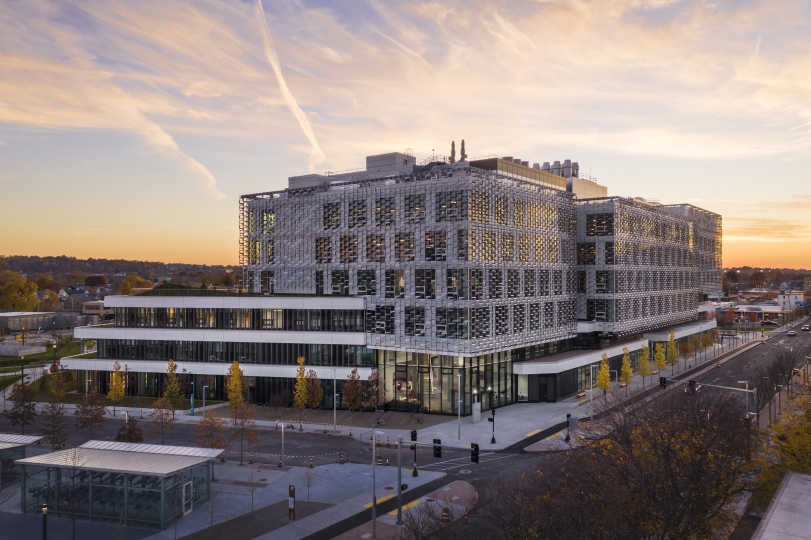News
Harvard University today launched The Grid, an initiative aimed at speeding up the translation of innovations from university labs into commercially viable products and services that address global challenges. The suite of programs, housed in Allston and focused on the physical sciences and engineering, will enable entrepreneurially minded Harvard researchers and students to translate their research into startups.
A collaboration between the Harvard John A. Paulson School of Engineering and Applied Sciences (SEAS) and the Harvard Office of Technology Development (OTD), The Grid will provide researchers and their emerging ventures with internal accelerator funding, physical space, educational programming, and connections to alumni, investors and the startup ecosystem.
SEAS and OTD also announced that they have named Paul Hayre, a serial founder and veteran executive of and adviser to early- and growth-stage startups, to serve as The Grid’s inaugural Executive Director.
Four activities will be part of The Grid’s initial offerings:
- Translational awards to support Harvard faculty-led research projects at the cusp of commercial viability;
- Dedicated workspace for selected teams, adjacent to faculty labs and other core facilities;
- Onsite advisors to provide expertise and mentoring in startup formation, fundraising, IP strategy, licensing, business development and other facets of launching successful ventures; and
- Educational programming geared toward undergraduate and graduate students, postdocs, and faculty, focused on translational and entrepreneurial skills and connections to the broader community of startups, investors, industry, and alumni, in collaboration with other University innovation initiatives.
The Grid will be housed in the recently opened Science and Engineering Complex (SEC). With its state-of-the-art labs, science cores, and hands-on teaching spaces, the facility is the most significant addition to Harvard’s campus in a generation and sits at the center of an emerging node on the region’s innovation ecosystem that includes Harvard Business School, the Harvard i-lab, the Pagliuca Harvard Life Lab, and the coming Enterprise Research Campus.
“The Harvard Grid will be a focal point for translational activities in the sciences and engineering,” said Frank Doyle, the John A. Paulson Dean of SEAS. “It will help nurture a new generation of Harvard entrepreneurs and innovators and represents an important milestone in our mission to bring technology and talent to solve real-world problems.”
Doyle added that an animating priority of the new initiative is to increase the diversity of founders by enhancing access to resources and mentorship for women and members of groups traditionally underrepresented in entrepreneurship and venture capital.
“Early-stage academic research often requires translational development that is beyond the scope of traditional government research funding,” said Isaac Kohlberg, Harvard’s Chief Technology Development Officer and Senior Associate Provost. “The Grid provides the infrastructure and environment for Harvard researchers to advance their innovations and create more impactful startups.”
Accelerator funding provided through The Grid builds on a track record of success established by OTD. Since 2013, projects advanced by Harvard’s Physical Sciences and Engineering Accelerator have culminated in 16 new startups that have collectively raised $150M, as well as technology licenses to established companies and sponsored-research agreements.
Now part of The Grid, the Accelerator will have increased funding capacity to make more and larger grants. Selected teams will join an entrepreneurial cohort with dedicated physical space at the SEC.
OTD staff and industry experts will provide ongoing guidance to the entire research community, and the Grid will actively engage with the venture communities in Boston and beyond.
The Grid will advance its educational mission by integrating innovation and entrepreneurship into the curricular and co-curricular life of SEAS. Workshops, lectures by subject matter experts, and other community programming will help students, postdocs, and faculty build entrepreneurship and translational skills, expose participants to leaders from relevant fields, and engage the broader community of startups, industry, investors, and alumni.
Topics: Entrepreneurship, Industry
Cutting-edge science delivered direct to your inbox.
Join the Harvard SEAS mailing list.
Press Contact
Paul Karoff




